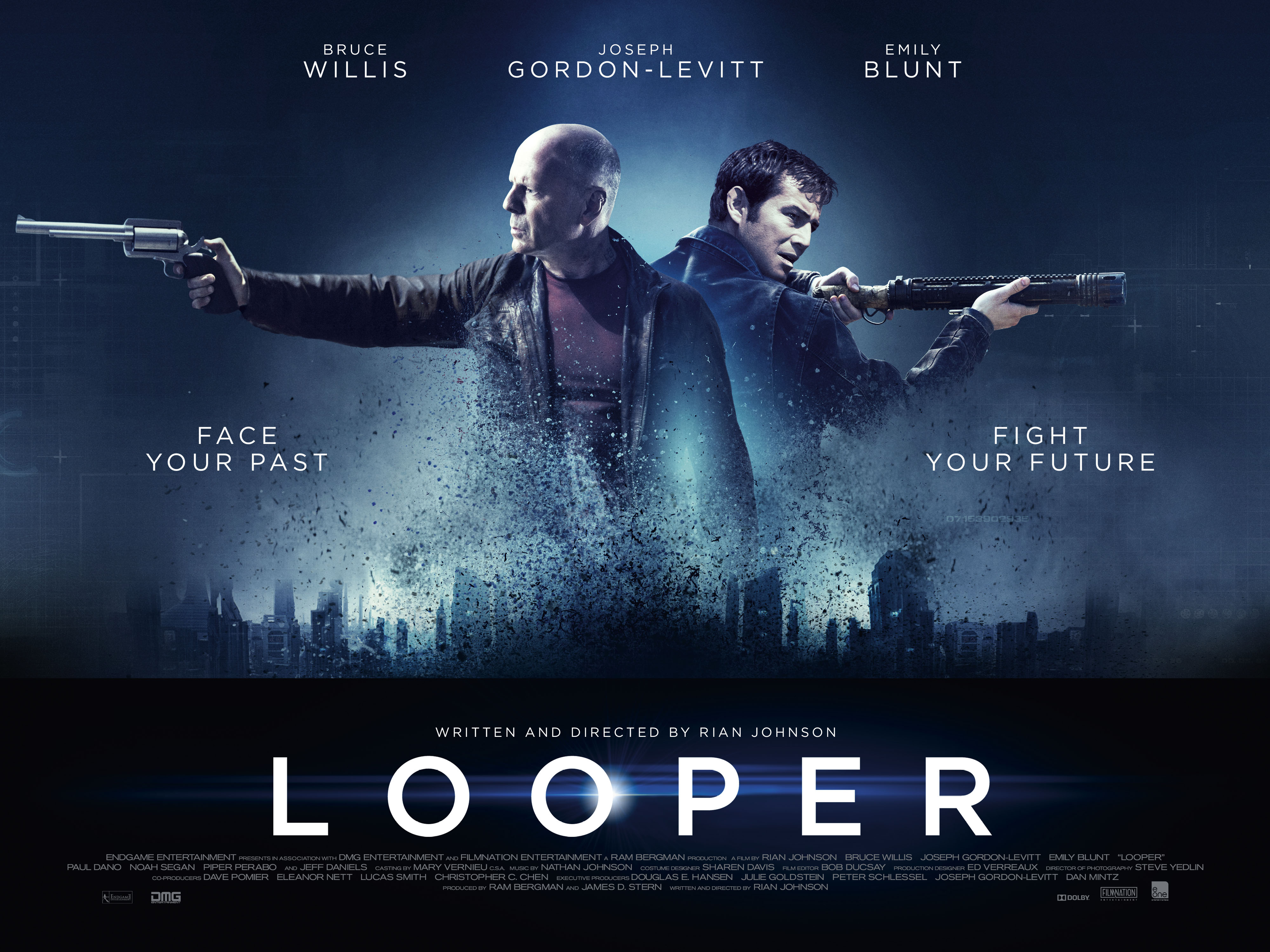
The notion of sitting down to breakfast with your future self is surreal enough without considering the added fact that you have to kill them. In the new blockbuster “Looper,” Joe (Joseph Gordon-Levitt) seeks to assassinate a target who happens to be himself in 30 years. Joe is a looper, a hired gun in the year 2042; in 2072, mob bosses use time travel to send certain individuals back to the past to be dusted and disposed of by loopers. No better way to clean up a blood trail than through a wormhole, and the ultimate tying up of loose ends is called “closing your loop.” This involves a looper killing their future self in exchange for a fat payday and 30 years of freedom before said loop closing occurs. It’s a strange retirement plan to say the least, but as Joe says in one of his many inner dialogues, “This job doesn't tend to attract the most forward-thinking people.”
Loopholes in time
Still with me? On paper this plot already seems like an exhausting adrenaline rush of time travel theology, but the visual incarnation is much more fluid. In the first 15 minutes, Rian Johnson, the film’s writer and director, maps out a world of few rules but many parameters. Taking place in what seems to be a futuristically decrepit Kansas City, “Looper” shows a future of black industry and gang-controlled dystopia. Abe (Jeff Daniels), a kingpin sent from the future to govern the loopers, runs the city from a sealed basement beneath a seedy strip joint — which seems like a throne compared with the rest of the rundown metropolis. Young Joe lives a comfortable life as one of Abe’s elite loopers, dispatching a transported victim once a day in the middle of a country paddock and gathering the silver blocks of currency attached to the corpse. Somehow all of the loopers maintain schedules of exactly when their targets will show up, always appearing kneeled with arms tied and heads sacked.
When an unusual amount of loops begin to close, young Joe becomes suspicious. Soon after, Joe prepares for an everyday kill and discovers a balding man kneeling before him who looks strangely familiar — a man with his eyes. This stalls young Joe, and old Joe (Bruce Willis) acts fast in incapacitating his younger self. Young Joe wakes up in the field with a headache and a target on the run; the cardinal rule of looping is to never, ever let the target get away, just like any assassination job with the added possibility of the spacetime continuum going haywire.
So why did future Joe come back in time with hands untied and no sack on his head, ready to face his younger self? 2072 is a very different time, and old Joe hopes to change the past in order to salvage his life and the lives of many others in the future. Old Joe has a sense of vengeance and determination about him, while young Joe is erratic and sees his own life as a priority, even if it means mercilessly slaying his future self. What ensues is a scramble by young Joe to hunt down and kill his target so as to clear his name with Abe while old Joe uses information he obtained in the future to track down a target of his own.
Reworking an old genre with fresh perspective
The future and time travel are genres exploited time and time again by Hollywood, and rarely are the products fresh or unique. “Children of Men” in 2006 is probably my favorite example of how the future can be presented in both gritty and artfully understated ways. “Looper” works in the same vein and, as an added bonus, it handles the time travel aspect with both intelligence and precision. In any attempt to blend the future with time travel there will always be plot holes — but the difference between a good plot hole and a bad plot hole is how greatly it alters one’s perception of the illusion. I could list several inconsistencies and unanswered questions in “Looper,” but none of such great consequence that it tainted the overall viewing experience.
My one problem with “Looper” is the shift it takes around it’s halfway point — I was fired up to see an all-out battle of wits between an assassin and his future self within the confines of a world that is as sordid and savage as the characters who inhabit it. Instead, “Looper’s” second half descends into formula with the addition of new characters and new dimensions to the story. This story shift wasn’t necessarily bad, just an unexpected fork in the road that went right when everybody expected left. I won’t give away the specifics of this shift, but I expected a stronger climax with as many twists, turns and thrills as a film like this is capable of. The performances by the talented cast were enthralling, though Johnson should have utilized Daniels the way Nicholas Winding Refn used Albert Brooks in last year’s “Drive.” It’s always fun to see an established comedian play an impressionably terrifying villain and get away with it.







